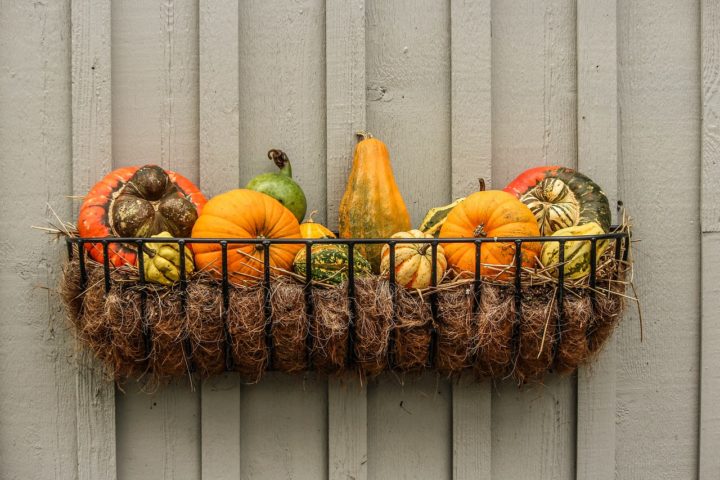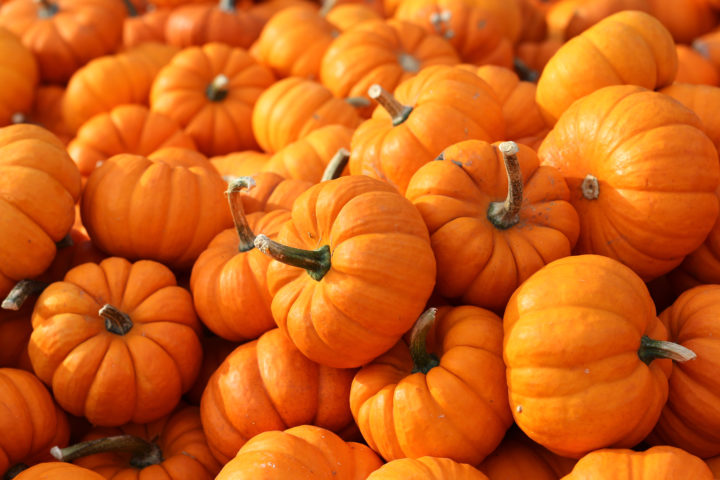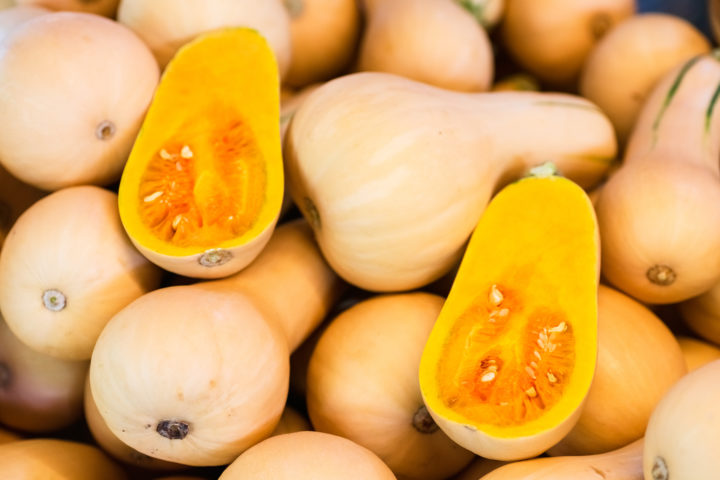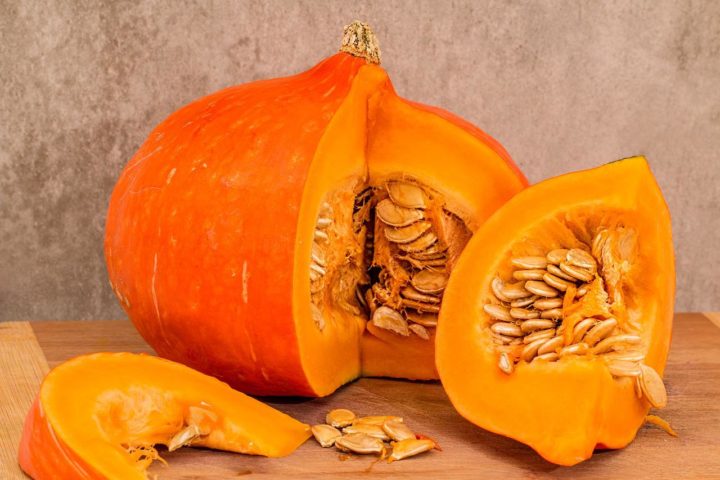
In this squash vs pumpkin comparison, we’ll see how these two remarkably similar foods differ from each other. Though they are quite similar in flavor and overall use, pumpkin and squash do offer some major differences worth noting.
In fact, these fruits can be so similar that many winter squashes end up getting labeled as pumpkins. Labeling aside, let’s see how these foods compare.
Pumpkin vs Squash: A Detailed Study
Notable Differences Between Pumpkin And Squash
Let’s start with a few notable differences between squash and pumpkin. A lot of us would say that a visual examination is enough.
However, there are hundreds of varieties of both these fruits and many of them have quite an overlap. Some of them are so similar that you could wonder whether is pumpkin a squash?
Therefore, looking at specific properties can make the differentiation a whole lot easier.

The Stem Holds Answers
In a sense, the biggest difference between pumpkin and squash is the stem. The stem for pumpkins is usually hard, rigid, and sharp. On the other hand, squash stems tend to be relatively more delicate as they are light and hollow.
Recipe Uses On The Sweet And Savory Side
Pumpkins are versatile. They go well with sweet or savory recipes alike. You could use them for soups and curries, and also for pies and puddings.
Squash generally prefers to side with recipes that are on the savory side. Edible squash varieties go well with other vegetables and don’t really get along with sweet dishes.
On The Texture And Nutrition
Paying attention to the texture of the fruit could help make differentiation easier. However, it isn’t really so. There are a lot of different varieties of pumpkin and squash and they often overlap in texture.
Nutrition details for both these foods work similarly, but on average, there is a difference. Conventionally, both these foods are rich in nutrients. However, when compared, pumpkins are far richer in proteins and very low on carbs. Their fat and calorie content is fairly similar.

On Seeds Of These Fruits
Seeds from both these fruits are edible, nutritious, and delicious. While pumpkin seeds are better known for their flavor and taste, squash seeds aren’t that far behind.
Seeds from butternut squash, acorn squash, and spaghetti squash are particularly well-known for their taste and nutrition.
FAQ
Is A Pumpkin A Gourd?
Pumpkins occupy an interesting space. Usually, they’re considered a type of squash. However, pumpkins are also gourd.
Scientifically, squash, gourds, and pumpkin are all part of the Cucurbitaceae family. All of them are closely related and share several features and characteristics.
So the perplexing answer to the complex relationship between these foods. Some gourds are squash and some squashes are gourds. A pumpkin is both a gourd and a squash.
Is Squash A Fruit?
For most of our culinary uses, we treat squash as a vegetable. In fact, given its love for savory recipes, it seems to fit in perfectly with this approach. But there’s more to the story.
To put it simply, the botanical classification of squash says that it is a fruit. Though it’s not an airtight classification, it is a fairly popular one and usually fits the bill.
In this classification, fruits usually develop from the flower of a plant. Squash fits this categorization and thus is seen as a fruit.

Is Squash Good For You?
Squash is a healthy and nutritious fruit and eating it is good for you. Most varieties of squash are rich in Vitamin C, Vitamin B6, and beta-carotene. They also include a fair bit of fiber, magnesium, calcium, and iron. So, yes, squash is definitely good for you.
Though we’ve taken a general overview of squash to see its healthy properties, it will be worthwhile to also consider a specific variety of squash so that we can talk about some real details.
The conventional and popular yellow squash offers several nutrients. It is rich in vitamins A, C, B6, folate, and riboflavin. It is also rich in manganese, magnesium, potassium, and phosphorus.
Can You Freeze Squash?
Yes, it’s possible to freeze squash. Although for best results, you should blanch it first. To freeze squash, start by cleaning it thoroughly. As the next step, cut it the way you usually dice it for your food. A simple ½ inch cube or ½ inch thick rounds should do.
Place the diced squash in boiling water and let it stay in the water for a minute. After this time, immediately transfer the squash from the boiling water to a bowl of ice cold water. After the squash has been in the cold bowl for a minute, you can drain the cold water.
At this point, you may choose to use a paper towel to absorb some extra moisture, though it’s not necessary. As the next step, place the diced squash on a parchment paper in a straight line, so they clump while freezing. Place them in a freezer to flash freeze for an hour.
Once the hour is done, move the squash to freezer-safe ziploc bags or airtight freezer-safe containers.
Conclusion
Comparing squash vs pumpkin gives us some very interesting insights. These plants are remarkably similar and within their hundreds of varieties, can hold qualities that are almost the same as each other.
Although these are distinct fruits (yes, pumpkin and squash are botanically classified as fruits!) and have their own distinct properties.
